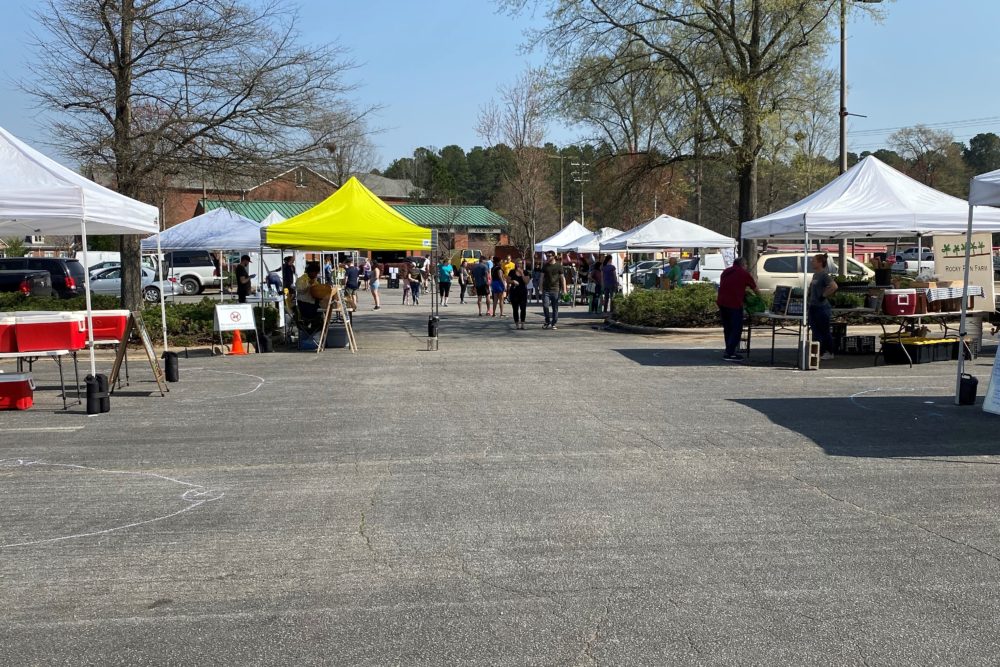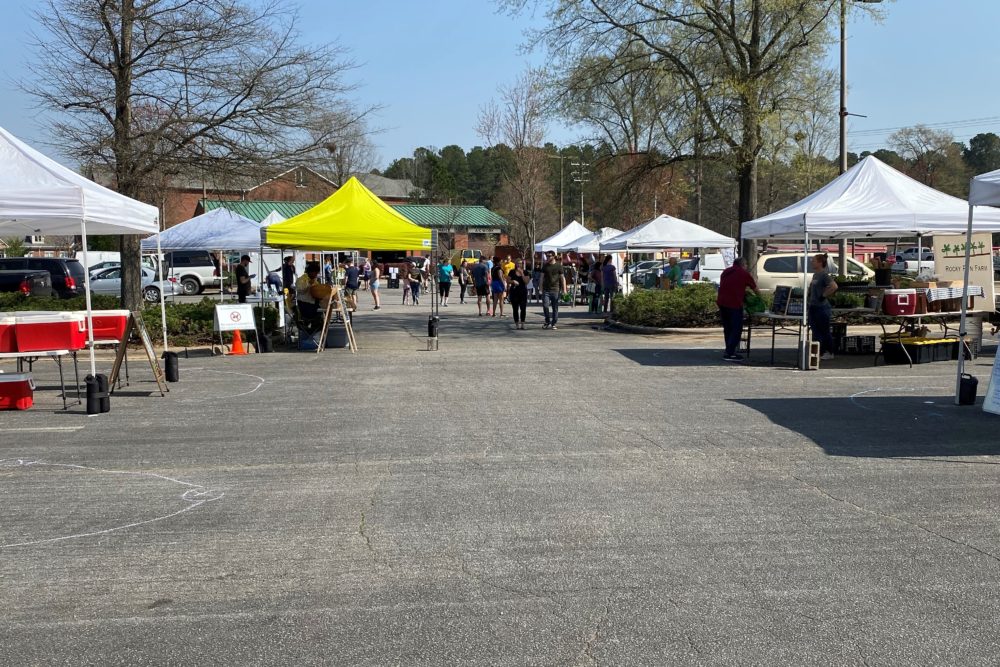by Roland McReynolds, CFSA Executive Director | Thursday, April 23, 2020 — (Last updated Monday, May 4, 2020)

Farms and food businesses with fewer than 500 employees and that meet the Small Business Administration’s (SBA) definition of ‘small business’ can apply for two newly-replenished federal emergency relief programs. If your farm or business is seeking emergency funding to weather the COVID-19 crisis in the near term, you should contact your bank and local SBA office immediately, as these new funds will disappear quickly.
Update, Monday, May 4:
SBA has resumed processing EIDL applications that were submitted before the portal closed on April 15, and will begin accepting new Economic Injury Disaster Loan (EIDL) and EIDL Advance applications from agricultural businesses only.
The new eligibility is made possible by the latest round of funds appropriated by Congress in response to the pandemic. Agricultural businesses includes those businesses engaged in the production of food and fiber, ranching, raising of livestock, aquaculture, and all other farming and agricultural related industries (as defined by section 18(b) of the Small Business Act (15 U.S.C. 647(b)).
SBA is encouraging all eligible agricultural businesses with 500 or fewer employees wishing to apply to begin preparing their business financial information needed for their application. SBA will continue processing applications from agricultural businesses that submitted an EIDL application through the streamlined application portal prior to the legislative change, without the need to reapply.
Eligible agricultural businesses may apply for the Loan Advance here.
Congress passed a bill that adds $310 billion to the Paycheck Protection Program (PPP). PPP was part of the CARES Act, the massive economic rescue package passed by Congress at the end of March to address urgent needs created by the COVID-19 pandemic. Congress set aside $349 billion for PPP initially, and those funds were exhausted as of April 16. Now that new funds are available, small businesses and farms have another chance to apply. This CFSA blog post has further details on applying for PPP.
Economic Injury Disaster Loans (EIDLs)
The other SBA program that Congress has now opened to all small farms and ag and food businesses, including nonprofits, is Economic Injury Disaster Loans (EIDLs). This program was also addressed in the CARES Act, but SBA policy had prohibited most farms and farm-based businesses from applying. The legislation passed this week explicitly makes agricultural operations eligible to apply for EIDLs.
How EIDL Works: Eligible operations, which now includes farms, that were in business as of Jan. 31, 2020 and that:
- are unable to meet their financial obligations;
- are unable pay ordinary and necessary operating expenses, OR;
- have suffered a reduction in working capital due to COVID-19,
may apply for an emergency of up to $2 million.
Upon submitting an application, a business may request an emergency advance of up to $10,000, which does not have to be repaid, even if the loan application is denied, or the business chooses not to accept the loan once approved.
NOTE: Current SBA policy limits the amount of any advance to $1,000 per employee of the business as of Jan. 31, 2020.
EIDL advance funds may be used to:
- pay sick leave for employees who are unable to work due to COVID-19;
- maintain payroll;
- cover increased costs of materials due to supply chain disruptions related to COVID-19;
- make rent or mortgage payments;
- pay utility bills;
- pay existing debts; and
- pay other bills that cannot be paid because of the COVID-19 disaster.
Advance Not Automatic: You must make sure to request the advance when filling out an EIDL application. The bill passed this week authorized another $10 billion for EIDL advances; just as with the first $10 billion appropriated for EIDL advances under the CARES Act, this new round of funding is expected to disappear quickly, so you should apply right away if you want access to an advance.
Want more info? Review the Farm Commons webinar, “EIDL for Farmers and Ranchers Affected by COVID-19.”
Other EIDL Terms: Congress has made the terms of full loans requested under the EIDL program easier. The maximum interest rate is 3.75% for for-profit businesses, and 2.75% for nonprofits. No collateral is required for loans of $25,000 or less, and no guarantee is required for loans of $200,000 or less.
The application may be submitted electronically or by mail. Although Congress authorized SBA to make EIDLs solely on the basis of an applicant’s credit score or other ‘alternative appropriate methods,’ so far SBA has required applicants to provide:
- The applicant business’ tax returns for three prior years;
- Personal tax returns for each principal owning 20% or more of the applicant business;
- 2019 Federal Tax Returns (or an explanation if it is not available yet);
- Personal Financial Statements (SBA Form 413) for the applicant business and each principal owning 20% or more;
- The applicant business’ debt Schedule (SBA Form 2202); and
- Confirmation whether the operation carries business interruption insurance.
The SBA determines final loan terms on a case-by-case basis, taking into account the actual economic injury your business has sustained and your ability to repay the loan and any other obligations. EIDL terms are up to 30 years.
Eligibility Note: In addition to having fewer than 500 employees, your business must also fall under the cap set by SBA for defining ‘small business’ in your sector. For farms, including livestock and aquaculture, that cap is $1 million in annual revenues. For timber and fishing operations the revenue cap is even higher, and for food manufacturing operations, there is no revenue cap to be eligible.
Where to Apply: Loans are made by the SBA directly. You can fill out the application online, or contact your local SBA offices:
>>Want more help? Don’t miss this EIDL application help guide.
Conclusion: Both EIDL advances and PPP loans could be valuable forms of emergency relief for small farms and food and ag businesses. However, the funds for the two programs are expected to run out in a matter of days, so don’t hesitate if you are interested in applying.
Another Option: Unemployment insurance for self-employed people. The CARES Act established the Pandemic Unemployment Assistance program that allows self-employed individuals and independent contractors to receive federal unemployment benefits. The Department of Employment and Workforce administers these funds in South Carolina; in North Carolina the Division of Employment Security will start taking applications for these federal unemployment benefits on April 25.
Want More?
Review the Farm Commons webinar, “EIDL for Farmers and Ranchers Affected by COVID-19.”


